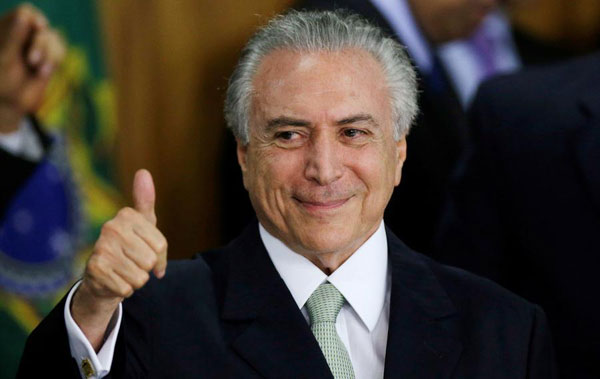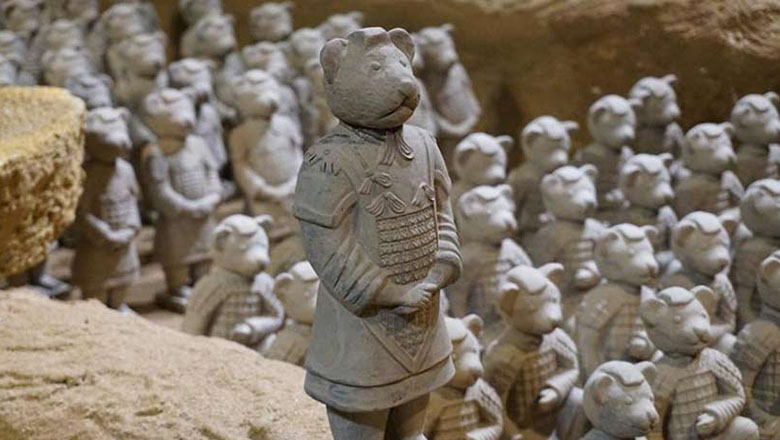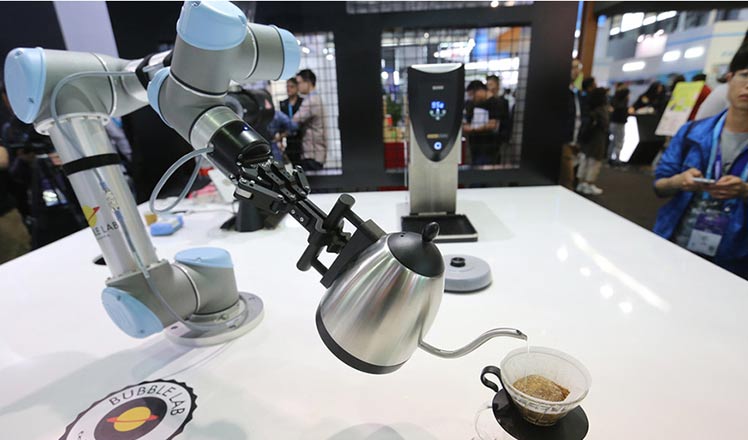Brazil to see better ties with China in trade, investment
Updated: 2016-05-16 15:21
(Xinhua)
|
||||||||
 |
|
Brazil's interim President Michel Temer gestures during a ceremony where he made his first public remarks after the Brazilian Senate voted to impeach President Dilma Rousseff, at the Planalto Palace in Brasilia, Brazil, May 12, 2016. [Photo/Agencies] |
BRASILIA -- Brazil's newly-installed interim government is expected to strengthen trade and investment ties with China, among many other measures to get its economy back on track.
After former vice president Michel Temer was sworn in as acting president of the South American country on May 12, the new government said it would launch a slew of new initiatives to restore economic growth.
Local economists and lawmakers all voiced belief that in striving for that goal, China has a pivotal supporting role to play.
"Brazil and China enjoy a long friendship with robust development (and) our Foreign Affairs Ministry has a very good relationship with its Chinese counterpart, so from that perspective I think the new government will only improve ties, not make them worse," Brazilian Senator Cristovam Buarque told Xinhua.
Bilateral trade between China and Brazil stood at 86.67 billion U.S. dollars in 2014, making China Brazil's largest export destination and source of imports.
"We are waiting for everything to return to normal in politics as well as the economy," said fellow Senator Helio Jose. "If that happens, there will be sustainable growth in areas where Chinese investment is concentrated, such as infrastructure.
"We welcome more Chinese investment," he added.
Over the years, China has purchased large sums of raw materials from Brazil, where it has also invested heavily in infrastructure, including hydropower facilities and automobile production.
Ronnie Lins de Almeida, director of the Brazilian Center for China Studies, said "all manufacturing industries should be prepared for changes" following the political shift.
"I think this is a good opportunity, as China, India and Russia have technological advantages. Information exchange can benefit all the countries, especially in the fields of technology and trade," said Lins.
As members of the BRICS bloc of emerging economies, China and Brazil have much in common.
"Officials, including our foreign minister, will strive to tap our trade ties with BRICS countries," said Senator Jose, adding "I know the importance of China and other BRICS countries.
"China is the most important economic entity in the world, with a huge investment in Brazil (and) Brazil is very much interested in enhancing its trade (ties) with China," said Jose.
Chinese business owners and others living and working in Brazil expressed hope for an early end to the political crisis.

 The world in photos: May 9-May 15
The world in photos: May 9-May 15
 Top 10 most generous companies in China
Top 10 most generous companies in China
 Wine market shrugs off slump
Wine market shrugs off slump
 Terracotta teddy bears debut in Wuxi
Terracotta teddy bears debut in Wuxi
 Karst wonderland in Southwest China
Karst wonderland in Southwest China
 Love on the rubble: wedding stories after deadly quake eight years ago
Love on the rubble: wedding stories after deadly quake eight years ago
 Italy's violin-makers struggle to hit profitable note
Italy's violin-makers struggle to hit profitable note
 High-tech gadgets shine at CES Asia in Shanghai
High-tech gadgets shine at CES Asia in Shanghai
Most Viewed
Editor's Picks

|

|

|

|

|

|
Today's Top News
Liang avoids jail in shooting death
China's finance minister addresses ratings downgrade
Duke alumni visit Chinese Embassy
Marriott unlikely to top Anbang offer for Starwood: Observers
Chinese biopharma debuts on Nasdaq
What ends Jeb Bush's White House hopes
Investigation for Nicolas's campaign
Will US-ASEAN meeting be good for region?
US Weekly

|

|







